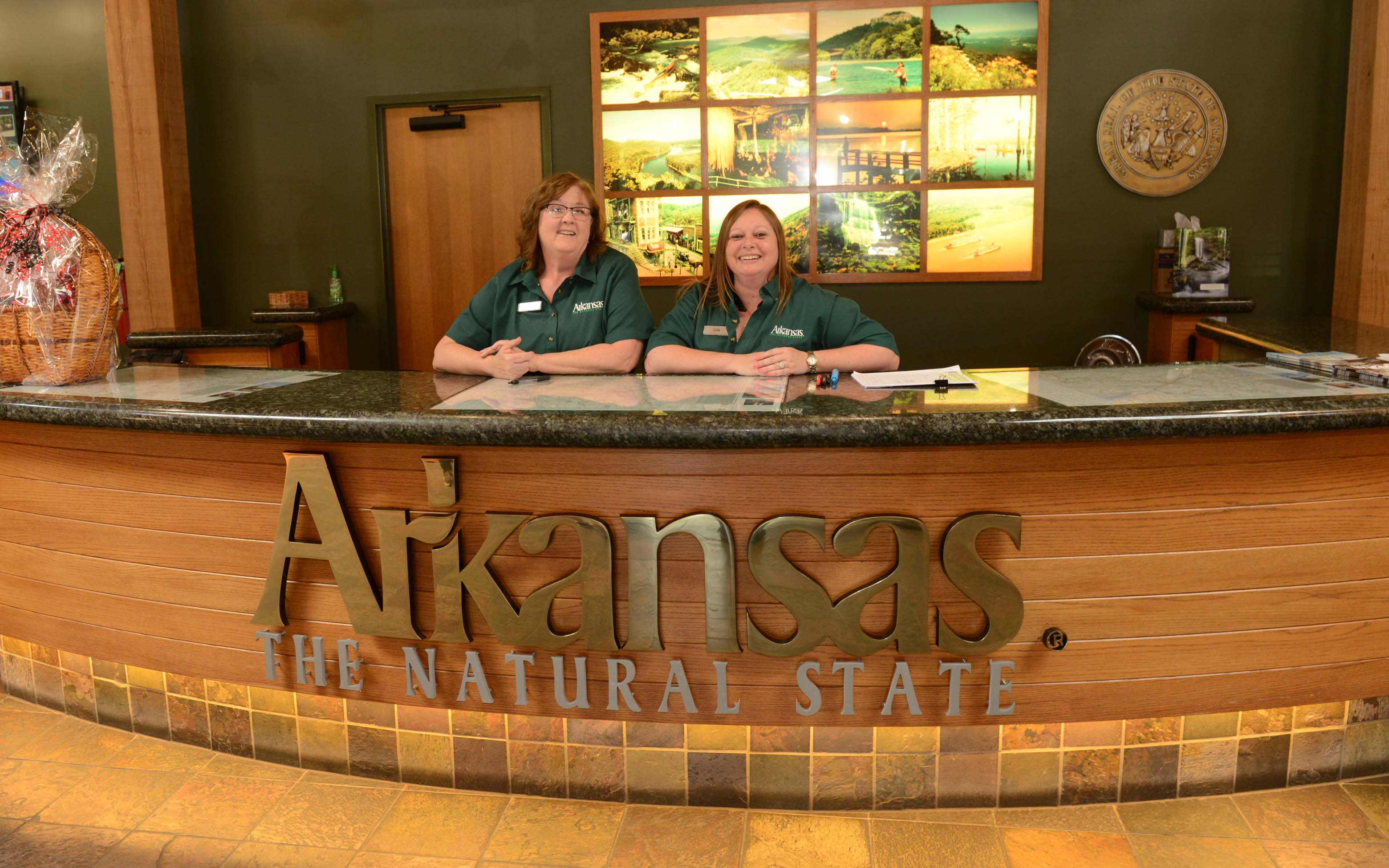Arkansas tourism industry seeks to recover from deep recession after summer vacation season
October 5-11, 2020
By Daily Record Staff
Even as Arkansas and the rest of the nation has seen a significant drop in fuel prices, the Natural State’s tourism and hospitality industry is stuck in a deep recession as most plans were cancelled or postponed indefinitely during the nation’s summer vacation season.
According to new data released Sept. 23 by the U.S. Travel Association, businesses small and large tied to the tourism and hospitality industry are in dire straits as half of the jobs in one of the nation’s largest industry sectors were lost between the onset of the COVID-19 pandemic in mid-March and early May.
Those numbers, prepared for U.S. Travel by the data analytics firm Tourism Economics, indicate an extreme threat to travel-supported jobs, which employed one in 10 Americans pre-pandemic. A massive 95% of all accommodation and food service employment is found within small and medium-size businesses, as defined by the U.S. Small Business Administration, with only 5% of those sectors’ employment found in businesses categorized as “large.” By comparison, only 28% of manufacturing jobs are found in small- or medium-sized businesses.
“These numbers highlight the urgent need for further legislative measures to provide immediate relief to small travel businesses and their employees, many of which were unable to access earlier rounds of aid,” said U.S. Travel Association President and CEO Roger Dow. “Washington acted quickly and aggressively to get assistance out the door in the early days of the pandemic, but the situation remains exceptionally dire on huge swaths of Main Street U.S.A., and more needs to be done.
U.S. Travel officials say the economic effects of the coronavirus have hit the travel industry especially hard, with travel businesses and organizations seeing unprecedented declines in revenue. As a result, more than half of the industry’s jobs have been lost so far — twice that of the worst year of the Great Depression—with 8.1 million jobs gone as of May 1. Also, travel spending is on track to fall by at least $500 billion this year, negatively impacting the U.S. economy by over $1.2 trillion dollars.
The Washington, D.C.-based non-profit trade group, representing all components of the travel industry that generates $2.6 trillion in economic output and supports 15.8 million jobs, has recently outlined a slate of policy priorities to provide relief, protection and stimulus for travel businesses and jobs. Short of that, the association supports a stand-alone measure to provide more resources to small businesses through an extension of the SBA’s $670 billion Paycheck Protection Program (PPP), which expired Aug. 8.
Under the $2.2 trillion Coronavirus Aid, Relief and Economic Security (CARES) Act approved by Congress in late March, the largest economic relief package in U.S. history included several major provisions to support the travel industry, most notably the Payroll Support Program that received over 230 applications for payroll support from a wide range of passenger air carriers.
But many travel industry officials are still concerned about mom-and-pop businesses that support the tourism and hospitality businesses, including transportation, lodging, retail, recreation and entertainment and foodservice — and spans across all travel segments. In Arkansas, state CARES Act Steering Committee recently approved some emergency relief for the state’s robust tourism and hospitality industry, one of the fastest growing sectors of Arkansas’ economy.
State gets $50 million tourism grants from CARES Act funding
During a recent meeting of the steering committee, state Department of Heritage, Parks and Tourism Secretary recently noted COVID has had a devastating impact on the travel, hospitality, and service industry, with the travel and hospitality sectors being the hardest his and expected to take the longest to recover.
Hurst recently submitted a $50 million proposal to the CARES Act task force to pay for a Business Interruption Grant Program administered through the Department of Parks, Heritage, and Tourism, the Department of Commerce, and the Department of Finance and Administration. Secretary Hurst noted these grants would be made available for industries negatively impacted by COVID and to cover losses incurred as result, like COVID-19 relief programs in Wyoming and Maine.
In minutes of the virtual meeting of the task force video on Sept. 9, Hurst told the panel that by early April industry insiders and economist were already forecasting that COVID-19 would have a devastating impact on the state’s tourism industry.
“Now, we hear over and over in newspaper articles and industry surveys and we know even from our own data at Arkansas Tourism that the travel and hospitality sectors are the hardest hit in the economy and predicted to be the slowest to recover,” said Hurst. “For example, just to let you know, the 2% tourism tax that we collect at the Arkansas Tourism (Division), which is an indicator of travel within the state, is down 35% this calendar year and that includes a record setting month that saw a 24% growth year-over-year.”
Hurst added: “We are really struggling within this arena.”
According to data provided by state tourism officials, Arkansas’ 69,000-worker travel industry grew by 1.4% in 2019. In the same period, 36 million visitors came to The Natural State in 2019, a 10.2% increase from 2018. Total travel spending in rose 4.2% in 2019 throughout the state. Arkansas’ 2% tourism tax revenue between January and June of 2020 was $5.905 million, down 30.4% compared with the $8.488 million in the same period in 2019. The tax was up 7.2% in 2019.
Secretary Hurst also noted that in early June, Gov. Hutchinson asked the state’s Hospitality Working Group to recommend actions on COVId-19 emergency relief. Secretary Hurst said applicants for the grant program, will be required to list any federal or state funding related to COVID they have already received and that would be factored into the Division of Tourism’s formula related to the grant that establishes the need.
In that same virtual meeting, CARES Act Steering Committee member Sen. Will Bond, D-Little Rock asked Hurst if a cap is being considered for how much each applicant can receive. Hurst explained that the plan is to gather all information, have a quantitative screening, followed by a qualitative adjustment and allocation. Division of Tourism officials did not respond by the Daily Record by deadline concerning details on when the program will begin accepting applications to received funding from the program.
According to Hurst’s original proposal to the committee, businesses that apply for COVID-19 assistance through the Division of Tourism must be in Arkansas and having 250 or fewer employees. Among other requirements, the $50 million grant program that was approved by the committee also has a “clawback” provision that allows the state to seek a refund from any grant recipients that submitted a fraudulent application or is otherwise precluded by law from receiving CARES Act funding from the state.
The 15-person task force was developed by Hutchinson in late March to identify the needs of the state and make recommendations for the best use of federal CARES Act dollars, which included $150 billion in emergency relief to Arkansas and other states. To date, the panel of state lawmakers and top policymakers has approved nearly all of Arkansas $1.25 billion allotment from the federal emergency relief package.
The committee has also set aside $250 million in CARES Act reserve funding to help fund state unemployment insurance expenses. According to the committee’s agenda for Sept. 25, the state Department of Commerce’s Division of Workforce Services has submitted a request for $160 million to be placed into the state’s dwindling Unemployment Trust Fund due to the increase in benefits being paid out due to the COVID-19 pandemic.
In late August, U.S. Federal Emergency Management (FEMA) Administrator Pete Gaynor approved Arkansas’ request for a federal grant under the Lost Wages Assistance program, opening the door for state ADWS to soon resume lapsed unemployment benefits of up to $400 per week to thousands of out-of-work jobseekers impacted by COVID-19.
The FEMA grant was made available after President Donald Trump issued an executive order on Aug. 8 authorizing to $44 billion from FEMA’s Disaster Relief Fund to provide financial assistance to Americans who have lost wages due to the COVI-19 pandemic. The earlier $600 unemployment benefit under the CARES Act expired on July 25, and top House and Senate leaders in Congress have yet to reach an agreement to extend those benefits.
For Arkansas to comply with President Trump’s order, the state must refill funds needed for the extended $400 benefit through the Pandemic Unemployment Assistance (PUA) program from state budget coffers. Hutchinson has said Arkansas must cover 25% of costs using existing funding, include the $250 in appropriations set side by the state CARES Act steering committee.
(Photo courtesy of Arkansas Dept. of Parks & Tourism)




